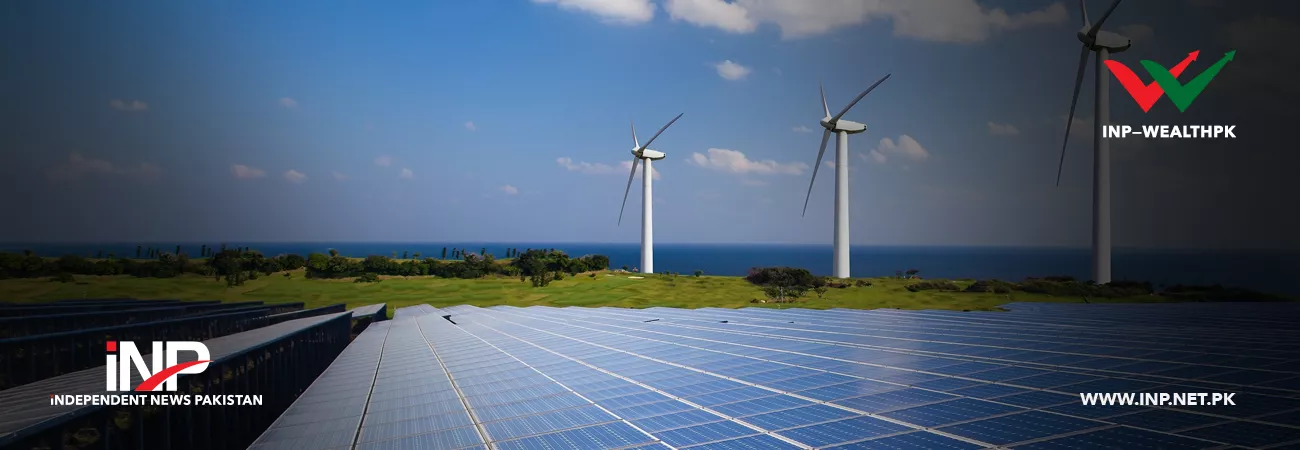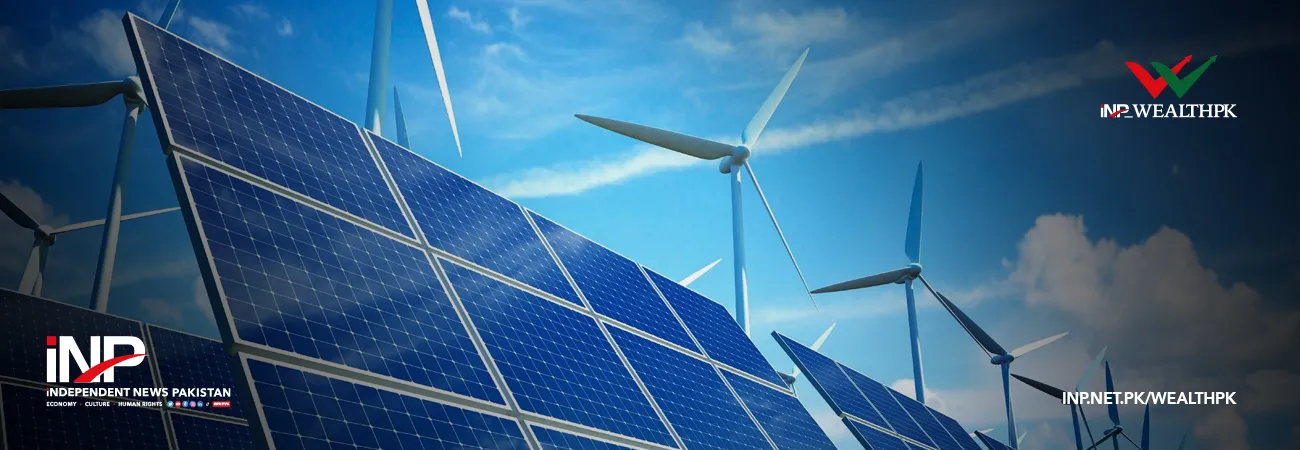INP-WealthPk
Abdul Wajid Khan
The Ministry of Finance says the government’s renewable energy scheme has shown outstanding progress, and it has successfully facilitated financing to more than 1,700 projects with a cumulative capacity of about 1,500 megawatts.
According to an official document of the Ministry of Finance, a copy of which is available with WealthPK, the scheme has made remarkable progress by providing refinance for banks’ financing to more than 1,700 projects till May 31, 2022. It says that as of August 22, 2022, the total disbursements of Rs93 billion have been availed by the participating financial institutions (PFIs).
Under the current revised scheme, financing is available for power generation of up to 50MW, using alternative/renewable energy sources including solar, wind, hydro, biogas, bio-fuels, bagasse cogeneration, and geothermal as fuel. The scheme comprises three categories. Under the first category, financing of up to Rs6 billion is available for prospective sponsors that are desirous of setting up renewable energy power projects with capacity of more than 1MW and up to 50MW for generating electricity for own use or selling to national grid or the combination of both. Financing is available at the rate of 6% with maximum tenor of 12 years.
Under the second category, financing of up to Rs400 million is available for the projects with a capacity of up to 1MW for borrowers including domestic, agricultural, commercial and industrial, who are desirous of installing renewable energy projects/solutions for the generation of electricity for own use and/or selling to distribution companies under net metering regulations of National Electric Power Regulatory Authority (NEPRA). Under this category, the financing is available at the rate of 6% and maximum tenor is 10 years.
Under the third category, financing of up to Rs2 billion is available for renewable energy investment entities (RE-IEs), that are desirous of installing renewable energy equipment (only solar and wind) on lease basis, rental basis, deferred payment sale, or selling of electricity to ultimate owners/users. Under this category, financing is also available at the rate of 6% and maximum tenor is 10 years.
The renewable energy scheme was first launched in 2009, with a view to meeting the growing electricity demand. Since then, the scheme has been revised twice i.e., in 2016 and 2019, respectively. Experts told WealthPK that the switching over to renewable sources of energy can help Pakistan achieve sustainable growth because the availability of the energy and growth of the economy are interdependent.
Pakistan direly needs to use local resources to generate energy because dependence on imported fuel for the generation of energy leads to economic losses, while the provision of cheap electricity will enable the industries to decrease their cost of production and increase exports.
The government is also focusing to construct renewable energy projects to decrease the burden on foreign exchange. The government has approved the construction of solar power projects of 2,000MW in the public sector to generate low-cost and environment-friendly electricity. It will reduce the country’s dependence on power projects running on costly fuels also burdening the foreign exchange reserves.
Credit : Independent News Pakistan-WealthPk













